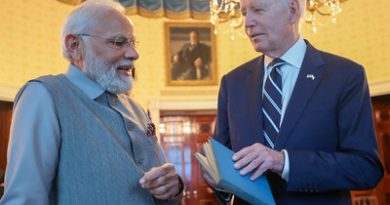Chatham House Hosts Forum Discussing Multilateral Development Bank Reform
Alex Lee
Staff Writer
On September 18, Chatham House hosted Odile Renaud-Basso, President of the European Bank for Reconstruction and Development (EBRD), to discuss the context behind Multilateral Development Bank reform. Among Renaud-Basso’s achievements is her position as Director General of the French Treasury, as well as the Vice President of the European Economic and Financial Committee. Additionally, she served as the Deputy Chair to the G7 and G20 groups and as French Governor of the World Bank.
A Multilateral Development Bank (MDB) is a bank which aims to build market economies through the use of investment. Based in London, the EBRD specifically attempts to promote economic reform in Central and Eastern Europe as the areas transition from command economies to free market economies. The EBRD includes a total of 71 countries, including Eastern European and Central Asian countries, the United States, India, and the European Union (EU), as well as Russia and Ukraine. As an institution founded in 1992, the bank is advised by the President, a board of directors, and a board of governors. Notably, due to the ideals of the investors, the EBRD will not invest in thermal coal mining or coal fired electrical power plants. The EBRD, as part of the 2015 Paris Climate Agreements, pledged to dedicate 40 percent of its budget to Green Climate Investment, with Russia donating 60 million euros to the cause.
There has been some controversy concerning the EBRD in terms of investments, as environmental and human rights advocates claim that the EBRD is supplying nations which commit aggressive acts against neighbors’ resources, despite the bank’s not making any new investments in Russia since 2014. Ukraine remains one of the largest borrowers from the EBRD, which provided nearly three billion euros in aid for the Ukrainian private sector. However, Acting U.S. Secretary for International Affairs of the U.S. Department of the Treasury Jay Shambaugh has stated that the EBRD has not made enough change to help the Ukrainian economy. When asked about Ukraine, she commented that the EBRD was among the first financial institutions to offer support. Further, during the winter missile attacks, the EBRD was working closely with the Ukrainian power company to supply generators and invest further money to continue the war effort.
Environmentally, the EBRD has continued to invest in hydroelectric dams and coal burning power plants, both of which can be extremely damaging to the environment. Further, the EBRD has invested in the Azerbaijani oil and gas industries, which critics say is in direct support of the oppressive regime that currently rules Azerbaijan.
Renaud-Basso maintained during the forum that despite the challenges faced by most MBDs, they are vital to the continued economic development of countries, especially during the climate crisis. She believes that banks like the EBRD are vital because they help to ensure nations have the funding necessary to meet their goals. She also stated that systematically, there is a need to reform the banks if they are to continue to help combat pressing threats. She asked for additional funding but stressed that the bank continues to work to find ways to minimize cost of financing.
Renaud-Basso also explained the need to work on keeping nations AAA rated, meaning they adhere to their financial commitments, in order to allow them to continue to borrow at the rates needed for continued development. Amongst the issues she highlighted for reform is that due to the invasion of Ukraine, more financing is needed to make up for the bank’s massive investment there. When asked what makes the EBRD unique, she highlighted the fact that the EBRD sits at a distinctive position as a government funded institution, which allows it to alter political barriers. Additionally, she explains that the EBRD has the rare asset of having “boots on the ground” in almost all of the countries it invests in, allowing for better information and a fuller, clearer picture of the impact of its investments.


